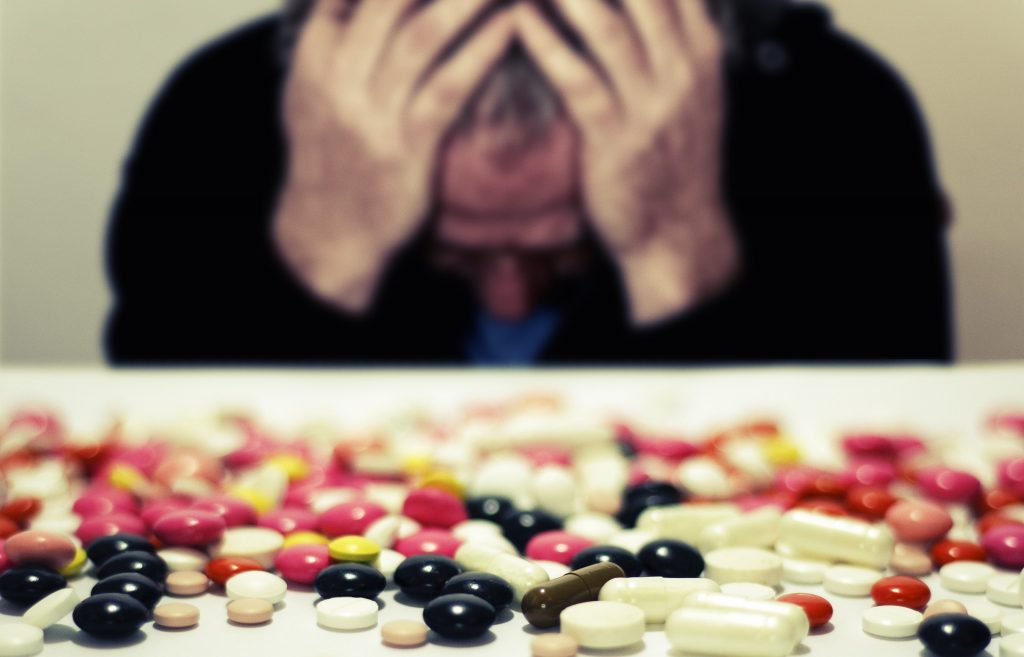Anxiety is one of the most common mental illnesses in the United States. Today, more than 40 million adults in America suffer from anxiety — that’s almost one in five people.
Americans are more stressed than ever, it seems. Between working long hours, taking care of the family, and dealing with peer pressure (e.g. social media), stress can affect everyone from time to time.
With stress comes anxiety, and subsequently: anti-anxiety medications.
What is Anxiety?
The American Psychological Association (APA) defines anxiety as “an emotion characterized by feelings of tension, worried thoughts and physical changes like increased blood pressure.” But anxiety doesn’t just come in one form; the five major types of anxiety disorders are:
- Generalized anxiety disorder (GAD)
- Social anxiety disorder
- Post-traumatic stress disorder (PTSD)
- Panic disorder
- Obsessive-compulsive disorder (OCD)
Each of these disorders carry their own unique symptoms. But to some degree, they all share similar symptoms like uncontrollable feelings of worry, concentration difficulties, or restlessness.
How to Treat Anxiety
One of the most effective ways to treat anxiety is through prescription drugs. Doctors can prescribe benzodiazepines, such as Xanax and Valium, to treat anxiety symptoms. Unfortunately, these drugs are often abused and lead to fatal overdoses. According to the National Institute on Drug Abuse, drug overdose deaths involving benzodiazepines rose from 1,135 in 1999 to 11,537 in 2017. That’s a staggering increase in less than two decades.
What is Xanax?
Although there are numerous prescription drugs that treat anxiety disorders, Xanax is the most prescribed anti-anxiety medication out there. It’s been immortalized by pop culture icons such as Justin Bieber, John Mayer, and Chance the Rapper.
Xanax is an oral medication that’s available in a wide range of potencies. It can be taken once a day, multiple times a day, or on an as-needed basis. Someone with social anxiety, for example, may take one right before delivering a speech. On the other hand, someone with post-traumatic stress disorder may need to take it on a more consistent basis.
What Does Xanax Feel Like?
On a physical level, Xanax will lower the heart rate, reduce blood pressure, and induce a feeling of relaxation. Medically, it’s intended to help balance the brain’s chemicals and slow down excessive brain activity. It’s frequently abused because of its immediate effects and potency.
As with many drugs providing instantaneous relief, Xanax can be highly addictive — the more Xanax a person takes, the more severe their withdrawals become when they aren’t taking it. These withdrawals can lead to long-term physical and psychological consequences.
What Makes Xanax Lethal?
When taken as prescribed, Xanax should present little to no side effects. If taken in quantities larger than prescribed, it can lead to drowsiness, difficulty concentrating, and memory problems. But it’s difficult to overdose on Xanax alone; it becomes fatal when mixed with alcohol or other prescription drugs, such as opioids. The number of deaths involving benzodiazepines and opioids has risen steadily since 1999.
What Can Be Done?
Denounce Xanax in Popular Culture
Drug use has become normalized in popular culture. As mentioned, pop stars like John Mayer have publicly praised Xanax and how much it helps them function in their day to day lives. Glorifying drug use, especially through social influencers like celebrities, only encourages more people to use them.
In 2016, Chance the Rapper publicly denounced Xanax and discussed how his addiction nearly ruined his career. Ideally, the more public figures who denounce the glorification of Xanax the better.
Keep an Eye on Your Prescriptions
Because the majority of deaths involving benzodiazepines also involve drugs like opioids, it’s important to never mix these two prescriptions. However, physicians or psychiatrists may prescribe both of these drugs at the same time. If that’s the case, they’re are opening up their doors for medical malpractice lawsuits.
Promote Alternative Treatments for Anxiety
There are alternative solutions for treating anxiety that should not be overlooked. Some of these include exercise, meditation, and even CBD oils. It’s always worth looking into natural solutions before seeking an anti-anxiety medication.
Xanax Is Not Inherently Bad
At the end of the day, millions of people prescribed with benzodiazepines do not abuse them. Xanax is not an inherently bad drug. When used safely, Xanax can significantly improve the lives of those suffering from anxiety disorders.





No Comment